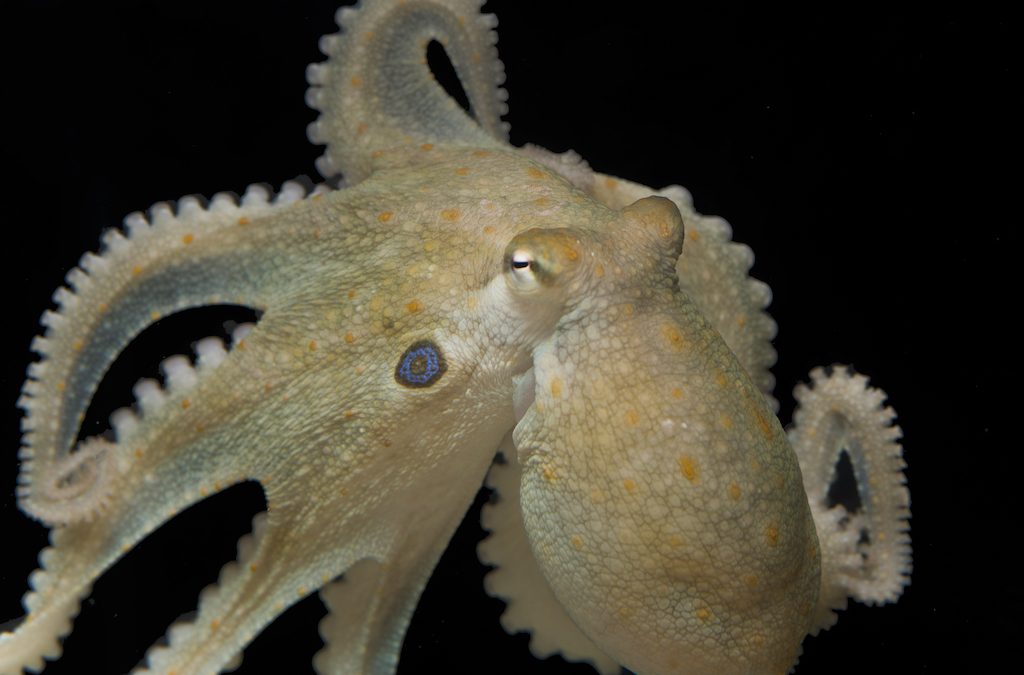When people take the psychoactive drug MDMA, commonly known as ecstasy, they become happier, more social and feel closer to others. A group of researchers studying this drug recently found that octopuses may respond in a similar way, in spite of how different they are from people.
On a normal day, octopuses are antisocial, unless they are mating. But when researchers gave them MDMA, the octopuses became much more social, wanting to spend more time around another octopus housed in the same tank. They even seemed to want to “hug” the other octopus.
Judit Pungor, a neuroscientist at the University of Oregon, who was not involved in the research, told NPR that he was “shocked” at the effect that MDMA had on the octopuses.
Octopuses and Humans Share Serotonin Receptor
Octopuses and humans are not exactly close relatives. There are about 500 million years of evolution between us and them. Their brains are also vastly different. Rather than having a central brain with a highly-folded outer layer—the cortex —like humans do, octopuses have a decentralized nervous system with a central brain and separate control centers within each arm.
However, humans and the octopus species used in this study—the California two-spot octopus —share genes for a protein that binds the molecule serotonin to brain cells.
Also known as the “happy chemical,” serotonin is thought to behind feelings of well-being and happiness. MDMA’s effects on people come from the chemical increasing the activity of serotonin and other neurotransmitters in the brain.
This connection between humans and octopuses is what caught the attention of the researchers, who have been studying the drug for a long time, trying to figure out why it has pro-social effects on people.
But having the same serotonin-binding protein doesn’t mean the octopuses would react the same as people do to MDMA.
Researchers Test MDMA on Octopuses
To find out, researchers placed the hand-sized octopus in a beaker of seawater and MDMA. This allowed the creature to absorb the drug through its gills.
At high doses, the octopuses became hyper-vigilant, sitting in the corner of the tank and watching everything. At lower doses—which are more along the lines of what people might take—the octopuses became more social.
Normally, an octopus would avoid a second octopus placed inside a small cage in its tank. But researchers found that an octopus on MDMA spent much more time near the other octopus.
Researcher Gul Dolen, a neuroscientist at Johns Hopkins University, told NPR that an octopus on MDMA would be “essentially hugging” its tank mate.
Dolan said the results of the study suggest that serotonin has been involved in promoting social behavior among animals for a long time—at least 500 million years ago.
The study was published September 20 in the journal Current Biology.
While it’s clear that MDMA affects the octopus’ social behavior, not everyone agrees that the drug makes an octopus love another octopus more. That’s because it’s hard to tell what’s going on in the octopus’ decentralized brain.
_____
Image: California Two-Spot Octopus (O. Bimaculoides). Credit: Thomas Kleindinst


